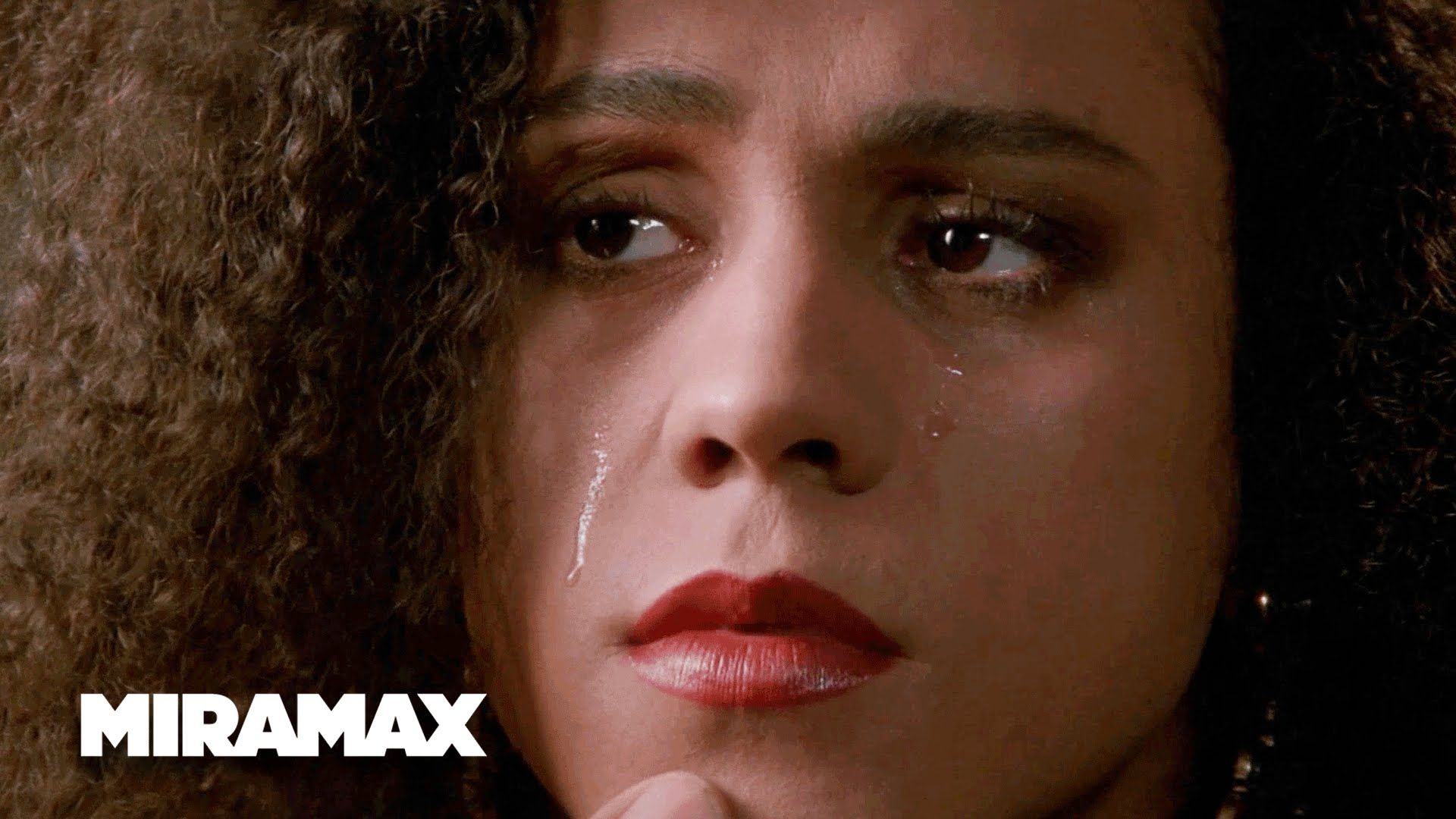Jaye Davidson emerged as a cinematic sensation in the early 1990s, capturing global attention with his unforgettable performance in the critically acclaimed film The Crying Game. Despite his relatively short-lived acting career, Davidson's impact on the film industry remains profound. His portrayal of Dil, a transgender woman, broke barriers and challenged societal norms, earning him an Academy Award nomination for Best Supporting Actor. This remarkable achievement was all the more extraordinary given that it was Davidson's debut role, marking him as one of the most unexpected yet celebrated talents of his time. Beyond the accolades, Davidson's story is one of authenticity and self-discovery, making him an enduring figure in cinematic history.
Born in England to a Ghanaian father and a British mother, Davidson's multicultural background added depth to his enigmatic persona. Before his acting career, he worked as a fashion designer and model, which contributed to his unique screen presence. His ability to convey vulnerability, strength, and complexity in The Crying Game was widely praised by critics and audiences alike. Despite his meteoric rise to fame, Davidson chose to step away from the limelight after just two films, leaving fans and industry insiders curious about the reasons behind his decision.
Even decades after his departure from Hollywood, Jaye Davidson's legacy continues to inspire discussions about representation, identity, and the transformative power of storytelling. His work remains a testament to the idea that true artistry transcends conventional boundaries. In this article, we will delve into Davidson's biography, explore his career milestones, and examine the lasting influence of his contributions to cinema. Whether you're a longtime admirer or new to his story, this comprehensive exploration will shed light on the man behind the iconic role.
Read also:Explore The World Of Entertainment With Movies4u Hindi Your Ultimate Guide
Table of Contents
- Biography of Jaye Davidson
- Personal Details and Bio Data
- What Made Jaye Davidson's Career Breakthrough So Remarkable?
- The Crying Game: A Defining Moment in Cinema
- Jaye Davidson's Second Film: A Follow-Up to Remember
- Why Did Jaye Davidson Leave Hollywood?
- What Is Jaye Davidson's Enduring Legacy in the Film Industry?
- Frequently Asked Questions About Jaye Davidson
Biography of Jaye Davidson
Jaye Davidson was born on March 21, 1968, in Eltham, London, to a Ghanaian father and a British mother. Raised in a multicultural household, Davidson's early life was marked by a blend of diverse influences that shaped his worldview and artistic sensibilities. Before his acting career, he pursued a path in fashion design, studying at Central Saint Martins College of Art and Design, one of the most prestigious institutions for creative studies in the world. This background in fashion contributed to his distinctive style and presence, which later became a hallmark of his performances on screen.
Davidson's entry into acting was serendipitous. He was discovered by casting director Susie Figgis while working as a model in London. Figgis was searching for an unknown actor to play the role of Dil in Neil Jordan's The Crying Game, and Davidson's unique look and natural charisma caught her attention. Despite having no formal acting training, Davidson's raw talent and authenticity shone through during auditions, ultimately securing him the role that would define his career. His performance was so compelling that it earned him an Academy Award nomination, a rare feat for a debut actor.
Following the success of The Crying Game, Davidson appeared in one more film, Stargate (1994), where he played the role of Ra, an alien ruler. Although the film was a commercial success, Davidson chose to step away from acting shortly thereafter, citing a desire to focus on his personal life and creative pursuits outside of Hollywood. His decision to leave the industry at the height of his fame has remained a topic of intrigue and admiration, highlighting his commitment to living life on his own terms.
Personal Details and Bio Data
| Full Name | Jaye Davidson |
|---|---|
| Date of Birth | March 21, 1968 |
| Place of Birth | Eltham, London, England |
| Nationality | British |
| Parents | Ghanaian father, British mother |
| Education | Central Saint Martins College of Art and Design |
| Profession | Actor, Fashion Designer, Model |
| Notable Works | The Crying Game (1992), Stargate (1994) |
| Awards | Academy Award Nomination for Best Supporting Actor |
What Made Jaye Davidson's Career Breakthrough So Remarkable?
Jaye Davidson's career breakthrough was nothing short of extraordinary, given the circumstances surrounding his entry into acting. At the time of his casting in The Crying Game, Davidson had no prior acting experience and was working as a model in London. His discovery by casting director Susie Figgis was almost accidental, yet it led to one of the most memorable performances in cinematic history. What made Davidson's breakthrough even more remarkable was his ability to convey deep emotional complexity and authenticity in a role that demanded both vulnerability and strength.
Davidson's portrayal of Dil, a transgender woman, was groundbreaking for its time. The film's narrative, which centers on themes of identity, love, and betrayal, required an actor who could embody the character's multifaceted nature. Davidson's performance was praised for its subtlety and nuance, capturing the essence of Dil's humanity without resorting to stereotypes. His ability to connect with audiences on such a profound level was a testament to his innate talent and the trust placed in him by director Neil Jordan.
The impact of Davidson's breakthrough extended beyond his individual performance. The Crying Game became a cultural phenomenon, sparking conversations about gender, sexuality, and representation in media. Davidson's role challenged societal norms and paved the way for greater inclusivity in storytelling. His Academy Award nomination for Best Supporting Actor was a historic achievement, making him one of the few debut actors to receive such recognition. This milestone underscored the transformative power of authentic casting and highlighted Davidson's unique contribution to the film industry.
Read also:Unveiling The World Of Khatrimazacom 2024 A Comprehensive Guide
The Crying Game: A Defining Moment in Cinema
The Crying Game, released in 1992, remains one of the most iconic films of its era, thanks in large part to Jaye Davidson's unforgettable performance. Directed by Neil Jordan, the film is a psychological thriller that explores themes of identity, loyalty, and the complexities of human relationships. Set against the backdrop of political turmoil in Northern Ireland, the story follows Fergus, a member of the Irish Republican Army, who becomes entangled in a web of deception and emotional transformation after meeting Dil. Davidson's portrayal of Dil is central to the film's narrative, as his character challenges Fergus—and the audience—to confront preconceived notions about identity and love.
What sets The Crying Game apart is its ability to blend suspense with deeply emotional storytelling. The film's plot unfolds in unexpected ways, keeping viewers on the edge of their seats while also inviting them to reflect on broader societal issues. Davidson's performance is pivotal in maintaining this delicate balance. His ability to convey both strength and vulnerability makes Dil a fully realized character, one who defies easy categorization. The film's famous twist, which reveals Dil's transgender identity, was groundbreaking at the time and remains a powerful moment in cinematic history.
Davidson's chemistry with co-star Stephen Rea, who plays Fergus, adds another layer of depth to the film. Their interactions are charged with tension and emotion, creating a dynamic that feels both intimate and fraught with uncertainty. The film's success can also be attributed to its innovative storytelling and Neil Jordan's direction, which allowed Davidson to shine in his debut role. The Crying Game went on to receive widespread critical acclaim, earning six Academy Award nominations, including one for Davidson, and winning the award for Best Original Screenplay. Its enduring legacy is a testament to the film's artistic and cultural significance.
How Did Jaye Davidson's Role in The Crying Game Impact Representation?
Jaye Davidson's role as Dil in The Crying Game was a watershed moment for representation in cinema. At a time when transgender characters were often marginalized or portrayed through harmful stereotypes, Davidson's performance offered a nuanced and humanizing portrayal. His depiction of Dil challenged audiences to see beyond societal labels and recognize the character's inherent humanity. This was particularly significant given the cultural and political climate of the early 1990s, when discussions about gender and sexuality were often fraught with misunderstanding and prejudice.
Davidson's casting as a transgender woman also broke new ground in the industry. By choosing an actor who identified as male but possessed a unique androgynous quality, director Neil Jordan made a bold artistic choice that emphasized the fluidity of identity. This decision resonated with audiences and critics alike, sparking conversations about authenticity in casting and the importance of diverse representation. Davidson's performance demonstrated that true artistry transcends traditional boundaries, paving the way for more inclusive storytelling in the years to come.
The impact of Davidson's role extended beyond the screen, influencing broader cultural perceptions of transgender individuals. The Crying Game became a touchstone for discussions about gender identity, inspiring filmmakers and activists to push for greater visibility and representation in media. Davidson's portrayal of Dil remains a powerful reminder of the transformative potential of cinema to challenge societal norms and foster empathy and understanding.
Why Was The Crying Game Universally Acclaimed?
The Crying Game achieved universal acclaim for several reasons, each contributing to its status as a cinematic masterpiece. First and foremost, the film's storytelling was both innovative and emotionally resonant. Its intricate plot, filled with unexpected twists and turns, kept audiences engaged while also inviting them to reflect on deeper themes of identity and morality. The film's ability to balance suspense with heartfelt emotion was a testament to Neil Jordan's direction and the exceptional performances of its cast, particularly Jaye Davidson.
Another factor behind the film's acclaim was its groundbreaking approach to representation. By centering its narrative on a transgender character and casting Jaye Davidson in the role, The Crying Game challenged societal norms and expanded the scope of mainstream storytelling. The film's exploration of complex relationships and its refusal to adhere to traditional genre conventions further distinguished it from other works of its time. Critics praised its boldness and originality, noting how it pushed the boundaries of what cinema could achieve.
Finally, the film's technical achievements played a significant role in its success. From its evocative cinematography to its haunting musical score, every element of The Crying Game contributed to its immersive and unforgettable experience. The film's critical and commercial success was reflected in its six Academy Award nominations, including Best Picture, and its win for Best Original Screenplay. Decades later, The Crying Game continues to be celebrated as a defining moment in cinema, thanks to its artistic innovation and enduring impact on audiences worldwide.
Jaye Davidson's Second Film: A Follow-Up to Remember
Following the monumental success of The Crying Game, Jaye Davidson took on a vastly different role in Roland Emmerich's 1994 science fiction epic Stargate. In this blockbuster film, Davidson portrayed Ra, the enigmatic and malevolent ruler of an alien civilization. While The Crying Game had been an intimate and emotionally charged drama, Stargate offered a grand, action-packed spectacle, showcasing Davidson's versatility as an actor. His performance as Ra was marked by an eerie

